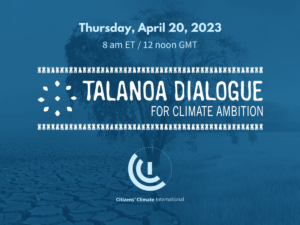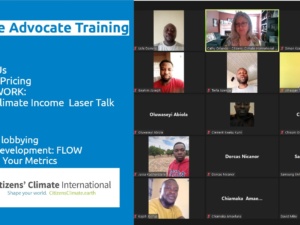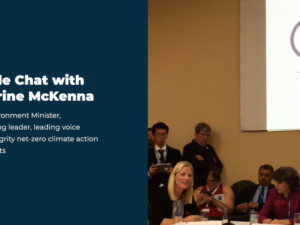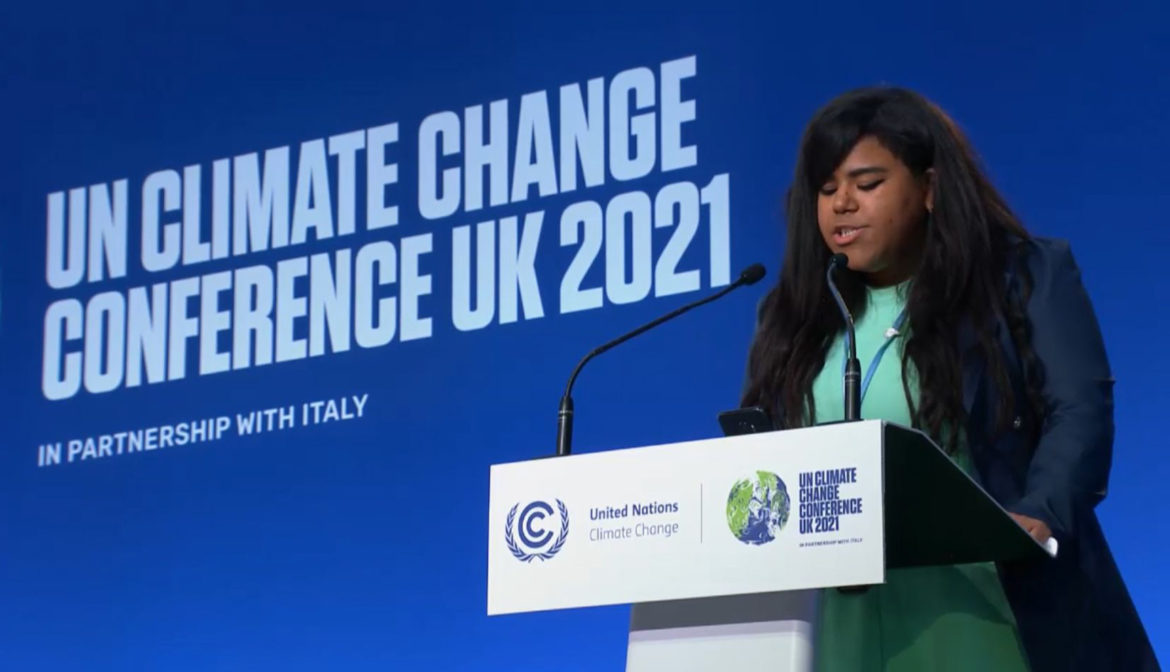
The first week of the COP26 was a roller coaster of major announcements and frustrations around access. The Glasgow Financial Alliance for Net Zero (GFANZ) now includes 450 institutions controlling $130 trillion that will begin to align with scienc-based net zero targets. This could have a transformational impact on the mobilization of private-sector capital, and also on the way nations behave toward questions of climate and money.

Opaque process has been criticized. Outside commitments are ratcheting up ambition. Draft outcomes signal urgency, but don’t go far enough.
As observers, we found ourselves with less access to the process than ever. Though some restrictions were necessary due to COVID, concerns continue that the absence of observers does not empower the most ambitious nations, but rather those that seek to disrupt and slow progress toward effective global climate action. There are some signs that this is happening, and could water down the legal language defining formal COP26 outcomes.
Rights are foundational.
One stark example of closed meetings empowering obstructors is the removal of key language about rights from draft outcome text. For instance, Saudi Arabia has aggressively opposed the mention of human rights in relation to Action for Climate Empowerment (ACE)—civics, education, public information.
- Functionally, they simply asked that the Doha Work Programme language, which did not yet contain Paris Agreement recognition of numerous and specific stakeholders’ rights, be continued, for the sake of time.
- The effect was to create a draft Glasgow Work Programme that does not mention some foundational Paris Agreement rights language.
- In reality, the Paris Agreement already includes this recognition, and nations are bound to honor universally recognized rights, in Paris Agreement implementation, and in line with non-climate international law.
- National high courts are increasingly recognizing climate protection as a human right, so this obstruction is out of step with legal standards and sends a signal that some nations feel threatened by the humanity of their own people.
One of our core principles is key here:
By virtue of existing, you are a climate stakeholder; you have a right to expect a healthy climate and a livable future.
It is not for people to demonstrate they are relevant to climate policy; it is for governments to honor the relevance and stakeholder status of all human beings.
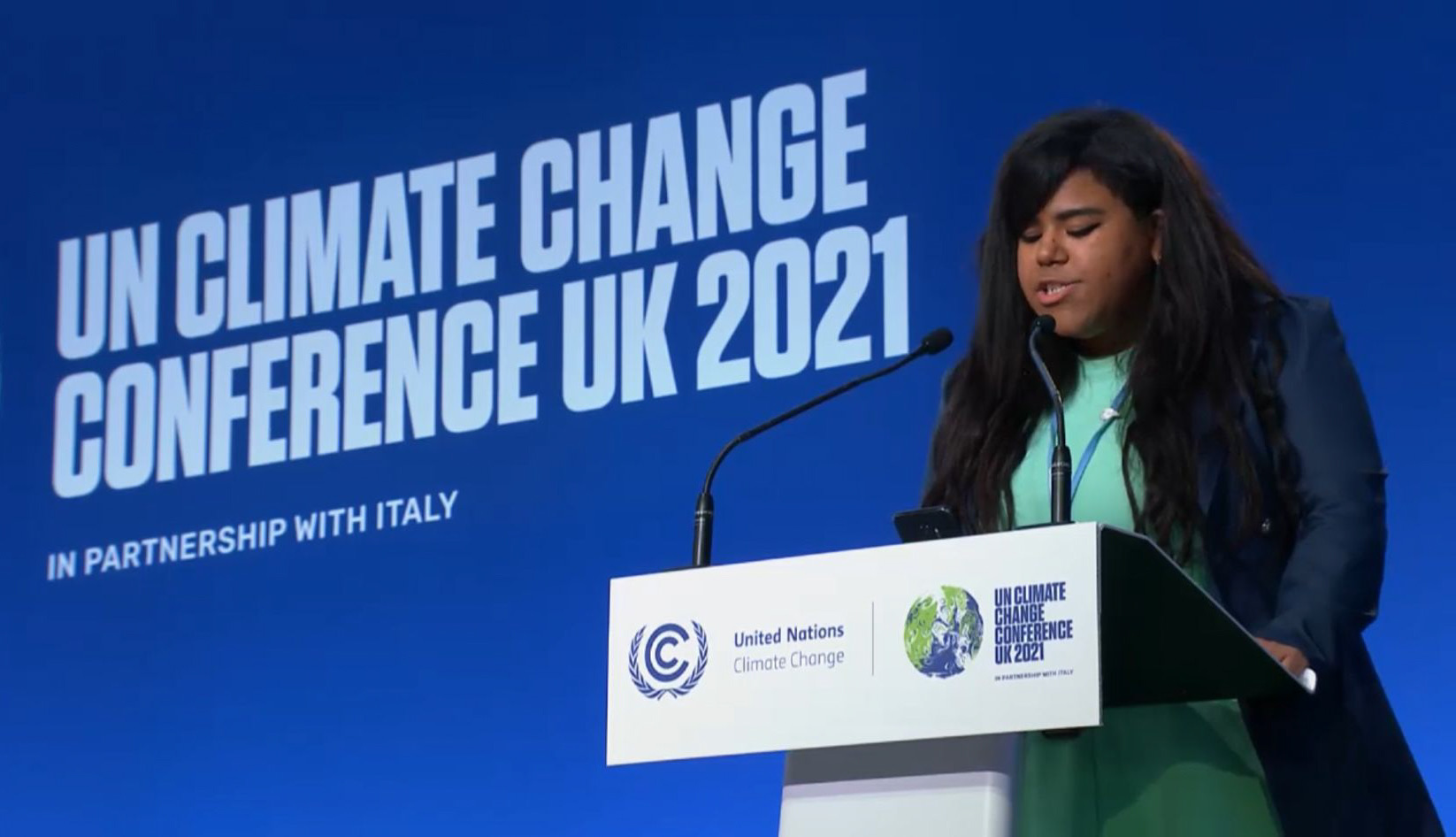
Isatis Cintrón, CCI Board member and International Regional Coordinator for Latin America, addresses the high-level segment at COP26.
We shared this view directly on a UNFCCC podcast on Adaptation Day, noting:
If you can compete at that level, if you can plan your future, develop your economy, serve the interests of your people, while respecting human rights, you’re doing a much better job, you’re in a much stronger position, your nation is going to have more influence and more security, if you can perform at that level. If you can’t, then of course, stakeholders are going to say, why can’t you?
We welcome the draft Glasgow Work Programme’s recognition of the role of communities and non-Party stakeholders in facilitating, coordinating, and sustaining ACE activity, including through training and partnerships. We also welcome the active encouragement for Parties to welcome public participation in the design and implementation of climate policies.
We will work with partners, and with aligned Parties and agencies, to create conditions for the Action Plan to be outlined at the mid-year negotiations in Bonn to consolidate real empowerment gains for stakeholders and communities.
Climate danger is already here.
As always, we must recall that the Convention is an agreement to “prevent dangerous anthropogenic interference with the climate system”. We are now experiencing that dangerous interference, with real everyday consequences for human wellbeing and basic rights.
Lia Nicholson, lead negotiator for the Alliance of Small Island States, told the Guardian:
Major emitters have to step up their climate action now, not in 2025, backed by concrete steps like ending fossil fuel subsidies in the next few years. Scaled up, accessible climate finance needs to happen now for more ambitious climate action in developing countries, through grants and not debt. It’s time to get to work and live up to our grand pledges.
Saleemul Huq—director of the International Centre for Climate Change and Development (ICCCAD) and co-chair of the Resilience Action Track for the United Nations Food Systems Summit—says reporting on progress and actions to raise ambition should be annual elements of the COP process. Others have made similar calls. The Climate Vulnerable Forum is calling for an Emergency Pact that includes this commitment.

The COP26 Action Zone is set up in a way to remind delegates that Earth is a living world moving through inhospitable space.
The reality is: If all nations do what they must to achieve overall mitigation of global emissions (OMGE), the scale of innovation and transformation will involve such relentless competition, it would become practically and economically untenable to operate with lower climate ambition. In a race to the to lead the climate-smart zero-emissions economy, revising national climate plans upward, regularly, will become a competitive must.
The COP26 has also produced a “delivery plan” for the promised $100 billion per year in catalytic climate finance assistance for developing countries.
What’s in the draft COP26 outcome?
The first draft of the COP26 Cover Decision was released yesterday, and includes a requirement that all nations release new national climate action plans, aligned with higher overall ambition, by the end of next year. Key provisions in the draft outcome may determine whether the nations of the world set us on a course to limit global heating to 1.5ºC.
The draft COP26 Decision emphasizes the urgency to act, as laid out by the best available science, citing the report of Working Group 1 for the IPCC 6th Assessment. There is significant overlap, but also additional operational detail in the draft CMA outcome (specific to the Paris Agreement), which we draw from here:
- I. Science — 1. Recognizes the importance of the best available science for effective climate action and policymaking;
- III. Adaptation finance — 15. Urges developed country Parties to urgently scale up their provision of climate finance for adaptation so as to respond to the needs of developing country Parties as part of a global effort;
- IV. Mitigation — 28. Decides to establish a work programme to urgently scale-up mitigation ambition and implementation during the critical decade of the 2020s;
- IV. Mitigation — 29. Urges Parties that have not yet submitted new or updated nationally determined contributions in accordance with decision 1/CP.21, paragraphs 23-24 to do so as soon as possible in advance of the twenty-seventh session of the Conference of the Parties (November 2022)…
Together, these four paragraphs demonstrate a clear recognition by the COP (the 196 national governments gathered in Glasgow) that dangerous climate destabilization is happening, that it will get worse without a significant increase in ambition, and that national ambition and the mobilization of finance are critical for the basic protection of human populations around the world.
The proposed work programme on mitigation ambition is a more powerful form of action than it might sound, to the outside observer.
- A work programme is a formal part of the climate negotiations, which in this case would mean there is an ongoing body working year to year on ways to enhance national climate ambition and the immediacy of climate action.
- It provides a collaborative way for nations to support each other’s innovation and progress, and also to hold each other to account under the scrutiny of their peers (who are also trading partners).
It is recommended it be read together with the draft CMA outcome (on Paris Agreement implementation).
Read the draft COP26 outcomeUnblocking Article 6 could unleash economic opportunity everywhere.
The negotiations around Article 6 of the Paris Agreement could provide important opportunities for enhanced action, both through international cooperation and down to the community level. Instead of high controversy about specific details, negotiators could settle on strong foundational language that makes clear:
- Accounting must operate on the understanding that we need verifiable emissions data, with molecular granularity, no double-counting, and a persistent move toward zero emissions (6.2).
- The Article 6.4 mechanism can be one integrated market or a menu of markets connected and coordinated but not fully integrated.
- Negotiators should look for ways to make the “non-market approaches” of Article 6.8 into an opportunity for creative, high-ambition cooperation across the world, in line with strict transparency standards of no double-counting and persistent progress on OMGE.
Those non-market approaches (NMAs) might be tax policies or trade policies, revenue recycling, or even policies that look a lot like a market, but are in fact more strictly regulatory. NMAs could include direct (non-tradable) investments in Nature, or payments for climate services.
It is imperative that Article 6 policies, activities, and related financial interventions, be strictly transparent and accountable. No credit for emissions reduction can be used to cover for delayed action or expanded pollution. If real-world action under Article 6 can be unblocked and mobilized, there will be significantly enhanced opportunity for investment on the ground, into Nature-based solutions and green development.
Dig into Article 6Climate emergency is a human story.
Citizens’ Climate International wants to see human rights, gender equity and indigenous rights, intergenerational equity, community-level participation, and also the rights of Nature, recognized as mechanisms for grounding the lofty announcements coming out of Glasgow. Climate emergency is hurting people, now, today; our global climate response needs to work through and provide value at the human scale.
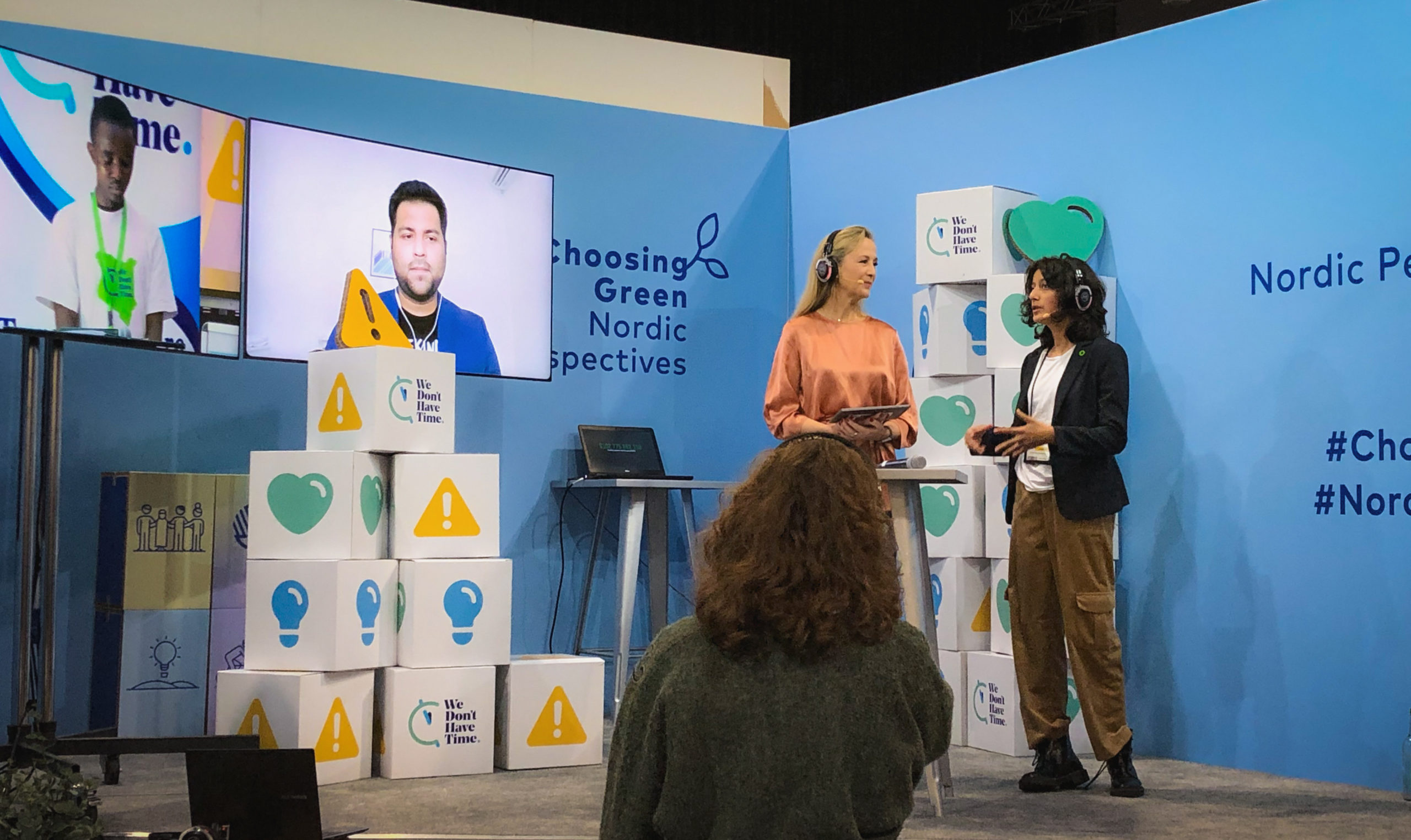
Sophia Mathur, leading youth climate advocate, who began her advocacy at age 7, addresses a global audience from COP26.
In the closing days of the COP26, there is much more at stake than the text itself. Those problematic countries, who have sought to water down language and obstruct progress, are by doing so recognizing the legal and transformational power of this process. They are recognizing the weight and impact of the text. Everyone else needs to be clear that we cannot afford such consequential negotiations to conclude without a commitment to act now to avoid persistent climate emergency.
As Dr. Katharine Hayhoe said during our conversation at COP26:
We live in the perfect home that we have taken for granted for many years, and today we realize that that home is in peril—not the actual planet itself but its ability to sustain our civilization and the life of many other living things… This is a time that history books will be written about in the future.
Let’s make sure we let future historians report that we made daring choices, and committed to work together, to create conditions for a livable future.
For inquiries about the CCI perspective on any of the above or the wider implications of COP26, email COP26(at)citizensclimateintl(dot)org
Additional resources
Read about CCI aims and activities around COP26:
- CCI COP26 Agenda Brief
- Reinventing Prosperity 1 Year Report
- The People’s Pavilion
- People-centered carbon pricing
COP26 resources:
- For detailed news about each day of formal sessions at the COP26, visit the Earth Negotiations Bulletin by IISD.
- For official COP26 negotiations documents, visit the UNFCCC Glasgow Conference documents section.
- To track climate action from non-state actors, including investors, industry, and municipalities, follow the Race to Zero.


